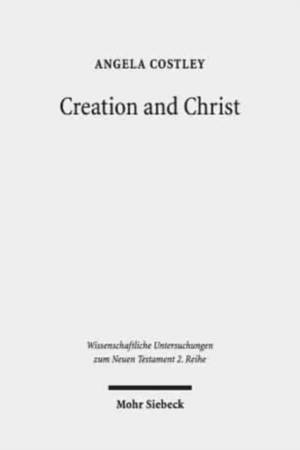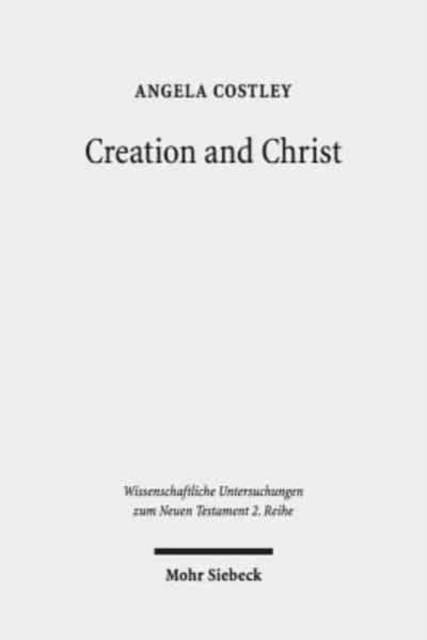
- Afhalen na 1 uur in een winkel met voorraad
- Gratis thuislevering in België vanaf € 30
- Ruim aanbod met 7 miljoen producten
- Afhalen na 1 uur in een winkel met voorraad
- Gratis thuislevering in België vanaf € 30
- Ruim aanbod met 7 miljoen producten
Zoeken
Creation and Christ
An Exploration of the Topic of Creation in the Epistle to the Hebrews
Angela Costley
€ 232,45
+ 464 punten
Omschrijving
The Epistle to the Hebrews is usually associated with its theology of Christ the High Priest. However, the term "high priest" is not so common in the first four chapters of Hebrews, occurring only four times with a further reference to sacrifice in 1:3. Rather than emphasising the priestly or sacrificial activity of Christ, these opening sections contain a number of references to creation: 1:2-3,10-12, 2:5-9, 10; 3:1-6; 4:3-4 and 4:9-10. In this volume, Angela Costley uses discourse analysis to explore the importance of the topic of creation to the discourse of the Epistle to the Hebrews, uncovering a close link between creation and salvation. She highlights the interaction of the topic of creation with the topic of salvation in the discourse to uncover a depiction of Christ as the creator who descends to take on human flesh, God who becomes human, in order to lead humanity heavenward.
Specificaties
Betrokkenen
- Auteur(s):
- Uitgeverij:
Inhoud
- Aantal bladzijden:
- 385
- Taal:
- Engels
- Reeks:
Eigenschappen
- Productcode (EAN):
- 9783161565021
- Verschijningsdatum:
- 1/05/2021
- Uitvoering:
- Paperback
- Formaat:
- Trade paperback (VS)
- Afmetingen:
- 155 mm x 231 mm
- Gewicht:
- 566 g

Alleen bij Standaard Boekhandel
+ 464 punten op je klantenkaart van Standaard Boekhandel
Beoordelingen
We publiceren alleen reviews die voldoen aan de voorwaarden voor reviews. Bekijk onze voorwaarden voor reviews.












